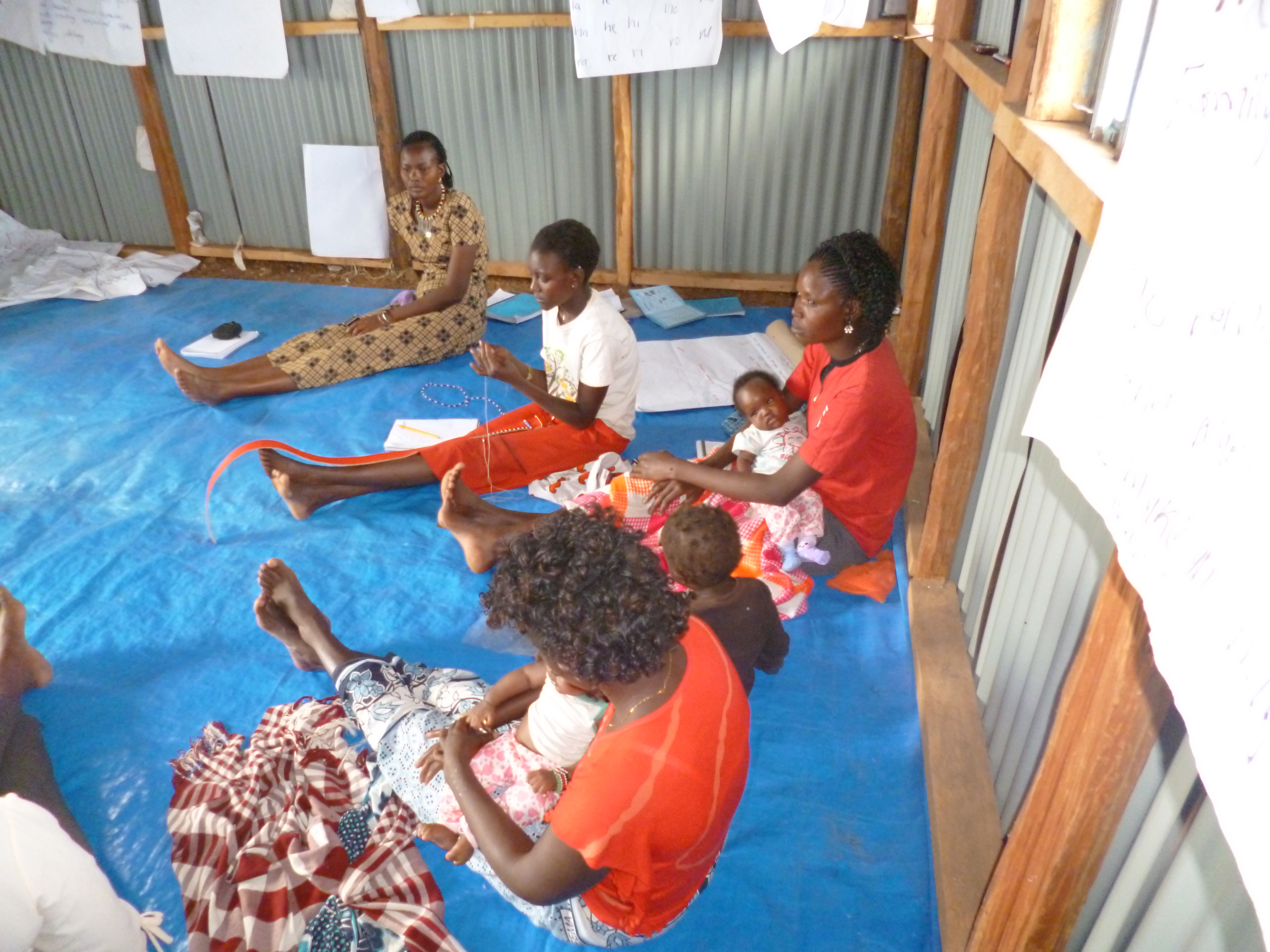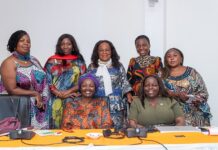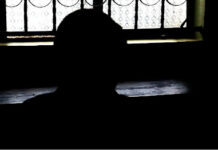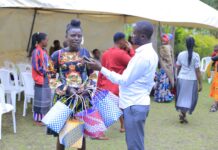By Mary Mwendwa
They are busy scribbling on books on a hot sunny afternoon , some reading on flip charts others keenly listening to their teacher , as she guides them through a lesson on hygiene in Maasai language. Sited bare foot on a plastic paper covering the floor are young women attending a Bonga (a Swahili slang for speak ) class at Mpuai village in Maasai Mara Game Reserve,Narok County.
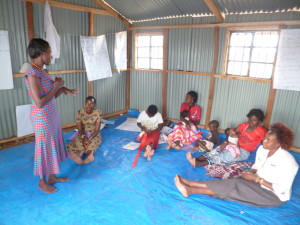
Outside the one roomed sheets roofed and walled class room are shoes and jerry cans displayed close to the door step. A young woman who seems to be in her early teens holds a small baby of like two months. She cuddles her as the baby screams because of the scotching heat. Lilian Kuyo, the teacher/animator stops to give the lady time to soothe the baby as others engage in silent whispers, may be reflecting on the days topic.
The lesson continues in Maasai language and after sometime questions are asked and I see from the response, many raising their hands up an indication that have understood the day’s lesson. Lilian says that young women who attend the Bonga class ,attend three days in a week. ”We teach these young women whom many of them were married off at very early ages like 12 and 13 and have not been able to go to school.Many come here with very low self esteem, they cannot speak for their own , are used to dictatorship and abuse from their respective homes.”
Noomeshuki Ketikai a mother of two from Mpuai village, at 18 she had never stepped in a school.”Iam happy that I can now learn how to write and read, I had never stepped in a classroom and my life has been full of misery because even counting money was a problem.I can now understand Swahili language , write my name and say greetings in English language.I could not even understand a single word in Swahili and English.The Bonga class has taught me many things.I now understand issues to do with hygiene, for example I now store my water well because storing water badly can contaminate it and hence a hub for diseases.I have learnt to embrace cleanliness in general even when iam having a small baby.I have witnessed change in my life, I can now add vitamins and other nutrients on my diet, I go to market to get fruits for my babies too. My babies look healthy and me too.”A happy Noomeshuki says.
Similarly, Taiyana Lenjirr, a 22 year old mother of two is grateful for joining the Bonga class.”This class taught me about pregnancy signs and how I should handle them.I now understand when I get pregnant at very early stages, long time ago I had no idea what was happening.I know how to my balance diet in my house.We eat carrots, vegetables , fruits and other things. Before our diet was not balanced and we could get skin infections every now and then.I had never stepped in a class and my only language was Maasai. Now I can spell words in Swahili and English and also I know how to handle money and save for future use.”
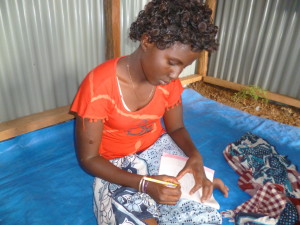
Nashipai Dukon does not know her age , all she knows was that she was married when very young.Though she looks like she is around 18 years she vividly recalls that she joined the Bonga class in January 2015.
”Iam now a learned woman, I can speak in swahili and say greeting in English.I have learned about diseases like Typhoid and how they are contracted. My life has really changed, I keep my house clean and children too. Iam happy my spouse has also seen change in my life .Iam glad that now I can stand and talk before people, I know my rights and I feel iam somebody in the community.”
Lilian Kuyo, teacher continues to say , “Our lessons handle topics on income generation, food and nutrition, sexual abuse, child trafficking, mental health and hygiene.Our syllabus is derived from Stromme Foundation guidebook on community Education. The Bonga class is sponsored by Basecamp Foundation and they try help the graduants access markets and job opportunities within the Mara after they have attended the full class of one year. This particular class started in January, 2015 with 25 members who are fully committed. After class they graduate and they get attached to places of training for those who do vocational training and after they are absorbed in the job market. Some of our members are already doing business and others serving in the camps around in housekeeping and kitchen work.
However, despite this noble course, challenges are still there.”We do experience i inconsistency from some members who fail to attend classes continuously due to home related issues. Some women are forced to take care of livestock and therefore they miss class. We have to deal with these challenges by going back to some lessons that were missed.
According to Jackson Sasine ,Program Officer, Base camp Foundation , Bonga classes located in Talek, Mpuai, Olesere and Nkoilale villages were rolled out in 2013 and usually have a hired animator/teacher by Base camp Foundation and each centre training girls for nine months in class and three to four months for life skills on vocational training.
“As an organization we do community awareness and education about Bonga ,sponsor girls for vocational training and support girls after Bonga training to start small business. The Bonga project has brought impact among these young women by raising their self esteem, many of the girls can boldly express their opinion in community meetings, something that was not happening before.Many have realized their potential to support their family economy by contributing towards family upkeep and the young women who did not have the opportunity to go to school can read basic words , write their names and do simple arithmetic counting.In the previous group, five of them are good in tailoring and three in food production especially pastry, they can bake cake and breads which during their vocational time their products were sold to guests at Basecamp’s restaurant . He adds activities like herding, taking care of everyone in the family and fetching water and firewood etc all before they go to class,drought, walking for long distance in search of water for domestic use and livestock , have posed a challenge to women attending Bonga class.
The Kenya National Adult Literacy Survey of 2006 pointed out that ,on average 38 per cent of the Kenyan adult population is illiterate,there are very wide regional disparities; for example, Nairobi had the highest level of literacy, 87 per cent, compared to North Eastern Province, the lowest, at eight per cent and males had higher literacy and numeracy rates of 64 per cent and 67.9 respectively, compared to 58.9 and 61.4 per cent for females.The report recommended that the Government of Kenya to increase funding and support for youth and adult literacy programmes ,establish more learning centres in each region and equip them with teaching and learning materials.
According to UNESCO, the average illiteracy rate for the sub-Saharan region is 38%. Kenya and Uganda have the lowest adult illiteracy rate (about 27%).
Literacy has been widely acknowledged as key factor for ensuring sustained human development. However, it remains among the most neglected of all education. Progress towards 2015 target of halving illiteracy has been slow and uneven.

